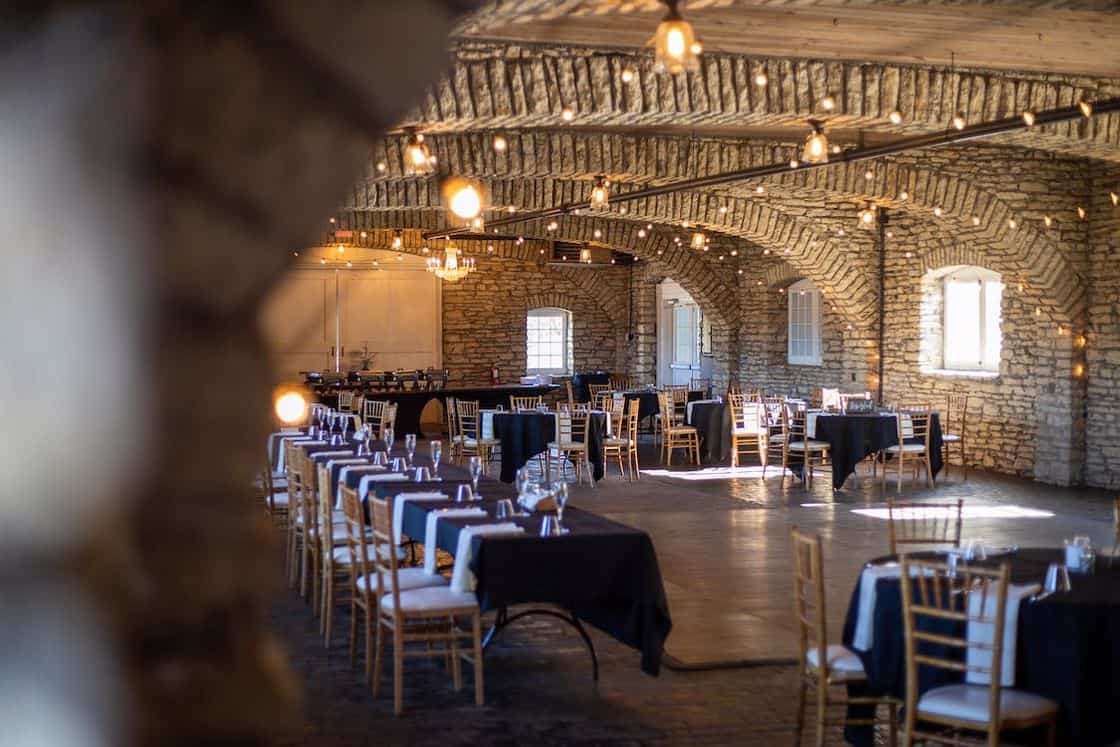A comprehensive guide to planning with event production charlotte
Wiki Article
Exactly How Event Production Functions: A Comprehensive Look at the Process
Event production is a complicated and organized process that requires careful preparation and implementation. It starts with developing clear purposes and understanding the target audience. Each step, from budgeting to place choice, plays a crucial duty in making certain success. As the procedure unfolds, numerous aspects have to align perfectly. The nuances of this detailed procedure commonly go unnoticed. What are the essential stages that add to a remarkable event?
The Preliminary Preparation Phase
When beginning on event production, cautious preparation is important to assure an effective outcome. The initial drawing board serves as the structure for all subsequent efforts. During this phase, event producers need to specify the event's objective and purposes clearly. Identifying the target audience assists tailor the experience and messaging, guaranteeing significance and engagement.Producers need to likewise think about the event format, whether it be in-person, digital, or crossbreed, as this will certainly affect different logistical aspects. Choosing an appropriate date and venue is critical, as it impacts availability and availability.Furthermore, constructing a reliable team is basic for separating duties and simplifying communication. Developing a timeline with landmarks warranties all jobs are completed on routine. This stage entails complete study, consisting of recognizing prospective challenges and devising approaches to alleviate dangers. Ultimately, a well-structured initial preparation phase sets the tone for a successful event production trip.
Budgeting and Resource Appropriation
In event production, efficient budgeting and resource appropriation are important for success - event production charlotte. Establishing economic specifications establishes the foundation for all succeeding decisions, while source circulation strategies assure that every component of the event is appropriately sustained. With each other, these aspects aid keep control over expenses and maximize using offered sourcesEstablishing Financial Parameters
Developing financial specifications is vital to the success of any type of event production, as it establishes the foundation for effective budgeting and resource appropriation. This process begins with specifying the overall budget, which encompasses all elements of the event, consisting of location expenses, event catering, and advertising and marketing. By determining available funds, event coordinators can focus on expenditures and designate sources accordingly. In addition, it is essential to carry out detailed market research to anticipate prospective expenses and recognize financing sources, such as sponsorships or ticket sales. Establishing clear monetary criteria also help in threat monitoring, permitting planners to set aside contingency funds for unexpected costs. Eventually, a distinct spending plan functions as a roadmap, guiding the event production team towards achieving their objectives while maintaining financial control.Resource Distribution Strategies
Effective resource circulation strategies are necessary for taking full advantage of the effect of an event while adhering to budget constraints. Successful event production requires a meticulous strategy to budgeting and resource allotment. Planners need to prioritize vital components such as place, wedding catering, and innovation, making sure that funds are assigned to areas that enhance attendee experience. A thorough spending plan must describe expected expenditures and identify areas for possible expense savings, such as negotiating with suppliers or checking out sponsorship opportunities. In addition, tracking expenditures throughout the planning process aids stop overspending. By employing critical resource distribution, event manufacturers can deliver an unforgettable experience while keeping monetary obligation, inevitably adding to the overall success of the event.Location Selection and Logistics
Picking the best venue is necessary to the success of any kind of event, as it sets the phase for the overall experience. Location selection includes evaluating different elements, including capacity, ease of access, and place. Coordinators must consider the target audience and the nature of the event, ensuring the place aligns with the event's goals.Logistics play a considerable duty in this process, entailing plans for seating, audiovisual tools, and catering solutions. An appropriate venue must promote smooth flow for participants and personnel, boosting engagement.Additionally, examining potential locations for amenities like vehicle parking, washrooms, and emergency departures is essential for safety and security and comfort. The timeline for safeguarding the place is additionally important, as popular places might book quickly - event production charlotte. As a result, complete preparation and timely execution can ultimately add to a smooth event experience, making venue choice and logistics fundamental components of successful event production
Imaginative Principle Development
While the venue establishes the physical phase, imaginative principle growth forms the event's identity and story. This procedure starts with recognizing the event's objective and target market, enabling event producers to create an engaging motif that reverberates with guests. Brainstorming sessions commonly include diverse perspectives, cultivating cutting-edge ideas that line up with the event's goals.Once a motif is developed, visual elements such as shade schemes, signage, and decoration are created to enhance the overall ambience. Narration techniques might likewise be integrated to develop an appealing journey for individuals, ensuring an unforgettable experience. In addition, factors to consider concerning entertainment, tasks, and interactive components are aligned with the picked idea, reinforcing the theme throughout the event.Ultimately, efficient imaginative principle growth guarantees that every facet of the event works cohesively, leaving a lasting perception on participants and satisfying the event's purposes. This foundational job prepares for succeeding planning and execution phases.Working together With Suppliers and Providers
Effective event production hinges review on efficient collaboration with vendors and vendors. Selecting trusted partners, negotiating agreements effectively, and making sure prompt deliveries are important steps in this process. Each of these aspects contributes significantly to the overall success and smooth implementation of an occasion.Selecting Reliable Partners
Exactly how can event organizers guarantee a seamless production experience? Picking reliable partners is necessary in achieving this objective. Event organizers should carry out thorough research study to determine suppliers and vendors with a proven performance history of excellence. This includes inspecting recommendations, assessing profiles, and evaluating customer responses. Planners ought to prioritize partners who demonstrate professionalism, timely communication, and a determination to team up. Building solid partnerships cultivates trust and enables fast analytic throughout the event. In addition, it is valuable to pick regional vendors that recognize the place and regional logistics. Ultimately, a successful event depends upon the harmony between organizers and their partners, making certain that every aspect of production runs smoothly and effectively.Discussing Agreements Successfully
Efficient arrangement of agreements is a vital step in the partnership between event organizers and their suppliers and distributors. This process involves clear interaction of assumptions, deliverables, and timelines. Coordinators must perform complete study on market prices and market criteria to establish a standard for arrangements. It is necessary to develop a collective atmosphere, urging open dialogue concerning terms, prices, and possible contingencies. Coordinators must likewise focus on recognizing the supplier's abilities and limitations to straighten their needs properly. Flexibility can cause mutually useful agreements, cultivating long-term partnerships. Crafting well-defined agreements that consist of certain performance metrics can assist assure responsibility, inevitably resulting in effective event execution and contentment for all parties included.Guaranteeing Timely Shipments
Prompt deliveries are necessary for the smooth implementation of any event, needing diligent partnership in between planners and their suppliers and distributors. Effective communication is crucial, as it aids establish clear expectations pertaining to delivery routines, amounts, and details requirements. Planners commonly produce thorough timelines to outline crucial turning points, making certain all parties remain lined up throughout the process. Routine check-ins with vendors can assist recognize possible hold-ups early, permitting for proactive solutions. Additionally, building strong relationships with reputable vendors promotes depend on and responsibility, which can lead to much better solution and prioritization. By prioritizing these collective efforts, planners can minimize disruptions, thereby enhancing the total efficiency of event production and guaranteeing that all necessary materials and solutions get here as prepared.Advertising and Promotion Strategies
While organizing an event, the success of advertising and marketing and promo techniques can greatly affect attendance and involvement. Efficient strategies usually consist of a combination of electronic advertising, conventional advertising, and grassroots outreach. Making use of social media systems enables for real-time communication and targeted marketing, getting to specific demographics properly. Email advertising projects can even more involve potential guests with personalized material and reminders.Collaborations with influencers or sector leaders can likewise enhance reputation and broaden reach. Developing engaging material, such as video clips or blogs, assists to create buzz and sustain rate of interest leading up to the event. Additionally, leveraging early-bird discount rates and unique perks can incentivize ticket purchases.Promoting with typical channels, such as posters or local media, stays relevant, specifically in community-focused events. A thorough method that incorporates numerous strategies guarantees maximum exposure and interaction, inevitably adding to the event's success and the development of a remarkable experience for participants.
On-Site Execution and Management
On-site execution and administration are necessary parts that determine the overall success of an event. Efficient control throughout the event guarantees that all components straighten with the intended program. Event managers manage logistics, consisting of supplier control, devices setup, and guest services. Checking timelines and attending to any kind of unforeseen concerns are basic for keeping a smooth experience.The team plays a considerable duty, as qualified workers are accountable for various tasks such as registration, info circulation, and technological support. Communication amongst group participants is essential; it fosters redirected here a collaborative setting and makes it possible for quick resolution of challenges.Additionally, safety procedures should be complied with, securing the wellness of all attendees. Post-event evaluations are additionally part of on-site management, giving understandings for future renovations. By concentrating on these elements, event producers can develop unforgettable experiences that meet or go beyond guest assumptions while accomplishing the event's objectives.Regularly Asked Inquiries
Exactly how Do I Choose the Right Event Motif?
Selecting the right event style involves taking into consideration the target market, event purpose, and place. Investigating current fads and gathering input from stakeholders can additionally inspire innovative ideas that reverberate and develop an unforgettable experience.
What Prevail Blunders in Event Production?
Typical blunders in event production often consist of poor preparation, bad interaction among group participants, budget plan mismanagement, ignoring to take into consideration the audience's needs, and falling short to perform a thorough post-event analysis description for future renovations.Exactly How Can I Gauge Event Success?
To determine event success, one can evaluate attendee satisfaction, involvement levels, budget adherence, and post-event responses. Secret performance indications, such as ticket sales and social networks communications, likewise supply important insights right into total efficiency.What Should I Do if It Rains on the Event Day?
In the event of rainfall on the day, the coordinator must execute contingency strategies, such as securing tents or relocating activities inside. Communication with participants concerning modifications is important to guarantee a smooth experience in spite of weather condition challenges.How Can I Guarantee Attendee Interaction Throughout the Event?

Report this wiki page